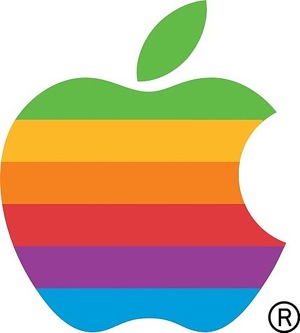
As someone who has been following Apple rumors both casually and professionally over the past couple of decades, Steve Jobs' biography reveals a number of intriguing forks in the road that may have led the entire company down a different path.
As far back as 1982, Macintosh Marketing Director Mike Murray proposed a Mac OS licensing program to Steve Jobs. Remember, the Mac didn't officially debut until 1984, so the idea was floated very early in development. Murray specifically suggested that Apple could license to Tandy since Radio Shack stores targeted a different market than Apple. Apple has been criticized over the years for not licensing their Mac operating system. Apple did briefly allow certain manufacturers to create Mac clones and license Mac OS, but Steve Jobs put an end to that shortly after his return to Apple in the late 90s.
While it seems a given that the iPod was to be made compatible with Windows, Jobs was very resistant to the idea. At one point he said that Windows users would get to use the iPod "over my dead body". After continued convincing, Jobs gave up:
As far back as 1982, Macintosh Marketing Director Mike Murray proposed a Mac OS licensing program to Steve Jobs. Remember, the Mac didn't officially debut until 1984, so the idea was floated very early in development. Murray specifically suggested that Apple could license to Tandy since Radio Shack stores targeted a different market than Apple. Apple has been criticized over the years for not licensing their Mac operating system. Apple did briefly allow certain manufacturers to create Mac clones and license Mac OS, but Steve Jobs put an end to that shortly after his return to Apple in the late 90s.
While it seems a given that the iPod was to be made compatible with Windows, Jobs was very resistant to the idea. At one point he said that Windows users would get to use the iPod "over my dead body". After continued convincing, Jobs gave up:
"Screw it," he said at one meeting where they showed him the analysis. "I'm sick of listening to you assholes. Go do whatever the hell you want."
Apple even considered writing an iTunes music client for Android, but Jobs didn't see the point.
"We thought about whether we should do a music client for Android," Jobs told me over breakfast the next morning. "We put iTunes on Windows in order to sell more iPods. But I don't see an advantage of putting our music app on Android, except to make Android users happy. And I don't want to make Android users happy."
For those who were following Apple rumors in the late 90s, there was a lot of talk about "network computers". In particular, Oracle's Larry Ellison was a big proponent of the idea, and spoke publicly about it. Persistent rumors suggested that Apple was going to try to build such a machine. It turns out that the iMac was originally planned to be such a network computer, which was basically an inexpensive terminal that would be used to connect to the internet.
Finally, when Apple was at a crossroads in the late 90s and deciding between moving Mac OS to a new architecture, then Apple CEO Gil Amelio actually favored using Microsoft's Windows NT as the basis for the next generation Mac OS. Of course, instead, Apple purchased NeXT, bringing Steve Jobs back to Apple.
Finally, when Apple was at a crossroads in the late 90s and deciding between moving Mac OS to a new architecture, then Apple CEO Gil Amelio actually favored using Microsoft's Windows NT as the basis for the next generation Mac OS. Of course, instead, Apple purchased NeXT, bringing Steve Jobs back to Apple.
If you found this post useful or interesting, don't forget to press the +1 Button
and leave a comment

No comments:
Post a Comment